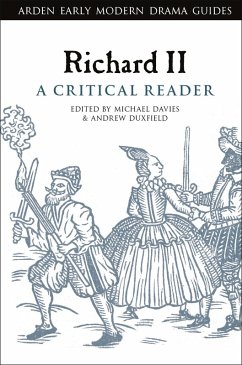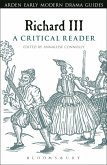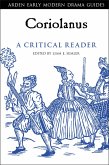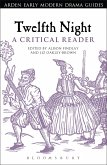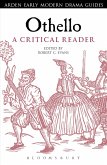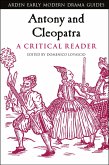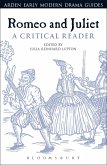Arden Early Modern Drama Guides offer students and academics practical and accessible introductions to the critical and performance contexts of key Elizabethan and Jacobean plays. Contributions from leading international scholars give invaluable insight into the text by presenting a range of critical perspectives, making these books ideal companions for study and research.
Key features include:
Essays on the play's critical and performance histories
A keynote chapter reviewing current research and recent criticism of the play
A selection of new essays by leading scholars
A survey of learning and teaching resources for both instructors and students
This volume offers a thought-provoking guide to Shakespeare's Richard II, surveying its critical heritage and the ways in which scholars, critics, and historians have approached the play, from the 17th to the 21st century. It provides a detailed, up-to-date account of the play's rich performance history on stage and screen, looking closely at some major British productions, as well as a guide to learning and teaching resources and how these might be integrated into effective pedagogic strategies in the classroom.
Presenting four new critical essays, this collection opens up fresh perspectives on this much-studied drama, including explorations of: the play's profound preoccupation with earth, ground and land; Shakespeare's engagement with early modern sermon culture, 'mockery' and religion; a complex network of intertextual and cultural references activated by Richard's famous address to the looking-glass; and the long-overlooked importance to this profoundly philosophical drama of that most material of things: money.
Hinweis: Dieser Artikel kann nur an eine deutsche Lieferadresse ausgeliefert werden.
Key features include:
Essays on the play's critical and performance histories
A keynote chapter reviewing current research and recent criticism of the play
A selection of new essays by leading scholars
A survey of learning and teaching resources for both instructors and students
This volume offers a thought-provoking guide to Shakespeare's Richard II, surveying its critical heritage and the ways in which scholars, critics, and historians have approached the play, from the 17th to the 21st century. It provides a detailed, up-to-date account of the play's rich performance history on stage and screen, looking closely at some major British productions, as well as a guide to learning and teaching resources and how these might be integrated into effective pedagogic strategies in the classroom.
Presenting four new critical essays, this collection opens up fresh perspectives on this much-studied drama, including explorations of: the play's profound preoccupation with earth, ground and land; Shakespeare's engagement with early modern sermon culture, 'mockery' and religion; a complex network of intertextual and cultural references activated by Richard's famous address to the looking-glass; and the long-overlooked importance to this profoundly philosophical drama of that most material of things: money.
Hinweis: Dieser Artikel kann nur an eine deutsche Lieferadresse ausgeliefert werden.

